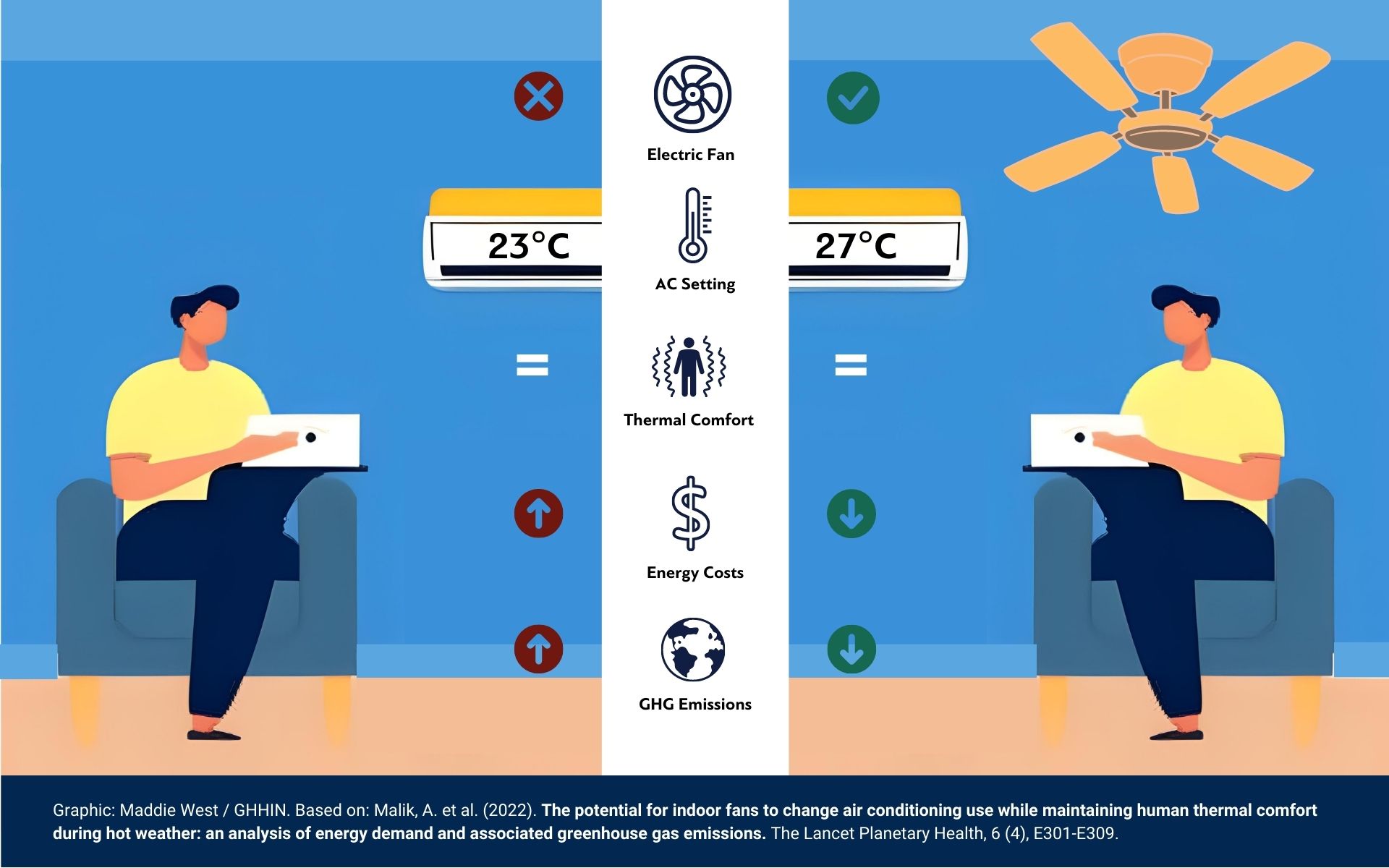The Power of Fans: Study finds simple way to slash AC costs without compromising comfort
Published: June 20, 2023
As millions around the world grapple with both rising temperatures and rising costs of electricity to cool their homes, it is more critical than ever to find sustainable alternatives to energy-intensive cooling practices.
A recent study published in The Lancet Planetary Health offers a simple solution: by combining indoor fans with higher air conditioning thermostat settings, we can fight greenhouse gas emissions and save money on electricity – all without sacrificing comfort and health.
Researchers from the University of Sydney conducted the study in Australia, focusing on how indoor fans can decrease energy demand and greenhouse gas emissions from air conditioning. They discovered that using fans, which require less than 5% of the electricity used by air conditioners, allows us to set the air conditioning thermostat 3-4˚C higher without affecting our comfort level.

This technique means that air conditioners can be used for shorter durations, turning on later and turning off earlier in the day. On some warm days, fan use alone may be enough to stay comfortable without using air conditioners at all, while current standard cooling practices could have air conditioners running for hours.
Using Australia as a case study, it was estimated that this “fan-first” cooling approach has the potential to reduce annual electricity demand from air conditioning by more than 70%.
A greenhouse gas abatement cost analysis, which evaluates the cost of implementing a measure relative to its potential to eliminate greenhouse gas emissions, suggests that adopting a fan-first cooling strategy surpasses the benefits of switching from incandescent to LED home lighting. This reduction in emissions is equivalent to removing millions of cars from the road each year.
This study shows that individuals can enjoy the same level of personal cooling while significantly reducing both energy bills and their carbon footprint – simply by raising their AC’s temperature and turning on a fan.
These findings hold particular importance in areas with high energy consumption and associated greenhouse gas emissions. They have significant implications for public policy as governments and businesses strive to meet sustainability goals.
——-
Learn more: